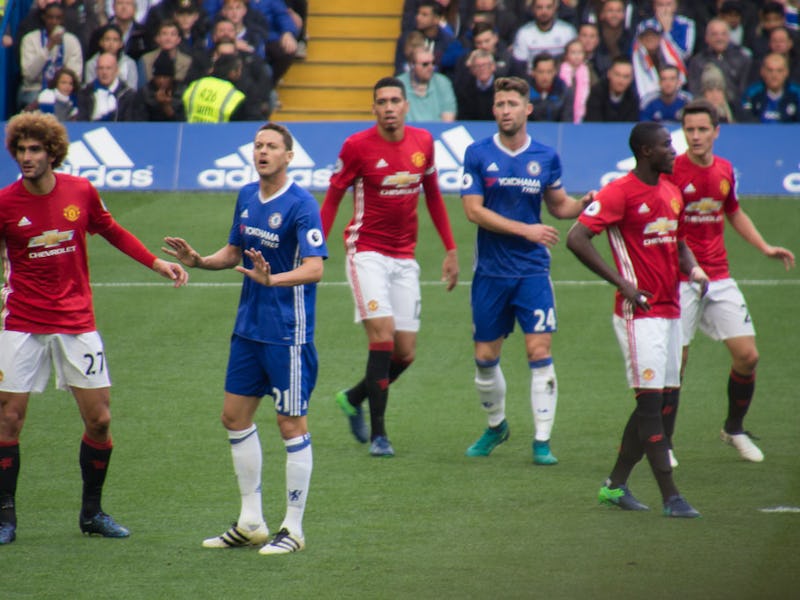A Bitter Soccer Rivalry Reveals What Bias Looks Like in the Brain
"Have they really seen the same thing?"

Manchester United and Chelsea fans hated each other decades before polarization was a political buzzword. Now, as British society threatens to split at the seams, researchers are turning to one of the English Premier League’s major rivalries to explain the neurological roots of such a visceral feud. In a study published Monday in the journal Cerebral Cortex, neuroscientists in England used die-hard fans of the rival soccer teams to show the complex ways that bias manifests in the brain. Their results go a long way in showing why watching one’s team succeed feels so great, as well as presenting implications for society at large.
It all started with the World Cup. While watching England play Colombia in an ugly, eight-yellow card affair in the 2018 World Cup, Tim Andrews, Ph.D., a neuroscientist at the University of York, became interested in why different types of fans could see the same plays from such different perspectives.
“We saw that two groups often interpret the same situation, stimulus, environment, in a completely different way,” he tells Inverse. “In such a way that you think, ‘Well, have they really seen the same thing?’”
This might seem a bit outlandish. But if the debate over The Dress has taught us anything, it’s that people tend to see wildly different things in different contexts. If that’s unconvincing, previous research has illustrated that biases influence which bits of sensory information actually make the neural jump from the brain’s visual system to the conscious mind.
Andrews’ hypothesis was an extension of this idea: Does your deep love for Manchester United mean that you literally don’t see your player commit a horrendous foul, or do you simply choose not to see it?
To test this question, Andrews showed fans of the rival teams, Manchester United and Chelsea Football Club, sequences that featured significant moments from previous matches, like fouls, goals or penalty kicks.
It was clear that the different fans saw the same things on the field, as they shared similar levels of activity in regions of the visual cortex. But brain activity differed in several other regions depending on which team the individual supported, showing that Manchester and Chelsea fans were having a different emotional experience of the same event.
Related: Misinterpretation of Climate Data Comes Down to Political Loyalty
The most distinct difference between fans occurred in the nucleus accumbens, a part of the brain that is deeply involved in our body’s reward system. This fits with previous work showing that recreational drug use causes spikes in dopamine in this area of the brain, which are partially responsible for that euphoric high. But Andrews also noticed that activity in other areas of the brain implicit in emotion and memory differed when people watched their teams succeed or fail.
Areas of the brain that this study suggests play a crucial role in group bias
“Imagine you’re a Chelsea fan and you see Chelsea score a goal,” Andrews explains. “You might remember seeing games like that, seeing it on the television, remember your emotions related to that. That activates that whole network that solidifies that group membership. And all the other fans are feeling the same way.”
Together, his results highlight the many interconnected mechanisms that become entwined in group bias — factors that are reinforced by memory and reward circuits in the brain after years of watching their teams compete. But he also is testing his concept on beliefs like politics too, testing to see whether the same mechanisms that make us support our favorite teams may be polarizing us in other domains:
“We’re looking at right-wing and left-wing political views. We’ve got some data from people while they watch videos of speeches,” he adds. “So hopefully there will be some further opportunities to look at group bias with this method.”
Manchester United play Chelsea next on October 20, and with every foul or yellow card or controversial off-side (or not-off-side) call, one can bet there will be two dramatically opposing views toward the same situation.